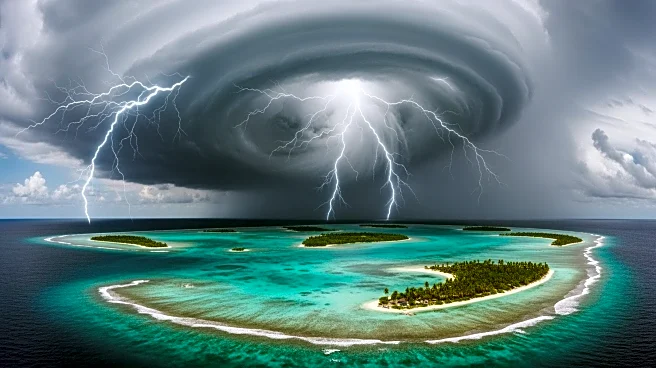What's Happening?
Hurricane Melissa has made landfall in Jamaica, marking the strongest storm to ever hit the Caribbean nation. The hurricane's intensity is attributed to climate change, which is believed to be influencing
the size and power of such storms. CBS News' Jason Allen and David Schechter have reported on the storm's impact and the role of climate change in exacerbating hurricane conditions. The Caribbean region, including Jamaica, is highly vulnerable to climate-fueled disasters, which pose significant challenges to local economies and infrastructure.
Why It's Important?
The intensification of hurricanes like Melissa due to climate change has profound implications for Caribbean nations. These countries often lack the resources needed for effective disaster preparedness and recovery, making them susceptible to long-term economic setbacks. The increased frequency and severity of such storms can lead to substantial economic losses, affecting growth and development for years. This situation underscores the urgent need for international support and investment in resilience-building measures to mitigate the impact of climate-related disasters.
What's Next?
As Hurricane Melissa continues to affect the region, Caribbean nations may seek international aid to address immediate recovery needs and long-term resilience strategies. Governments and organizations might focus on enhancing infrastructure to withstand future storms and implementing policies to reduce climate change impacts. The global community's response could play a crucial role in supporting these efforts, potentially influencing future climate policy and disaster management strategies.
Beyond the Headlines
The situation with Hurricane Melissa highlights broader ethical and cultural dimensions, including the responsibility of developed nations to assist vulnerable regions in adapting to climate change. It also raises questions about the equity of climate impacts, as smaller nations bear the brunt of disasters fueled by global environmental changes. Long-term shifts in international relations and climate policy may be influenced by the ongoing challenges faced by these countries.









